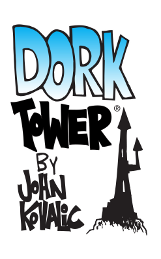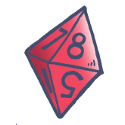Episode 41: The Kind of Scary Energy That Doesn’t Exist
May 31st, 2013 | Robin
 In the Gaming Hut, we examine the tradition of flaws and disads in RPGs. Do they put the “fun” in dysfunctional?
In the Gaming Hut, we examine the tradition of flaws and disads in RPGs. Do they put the “fun” in dysfunctional?
Then Ken and Robin adjourn to the Cinema Hut, where they try not to tell you too much about Shane Carruth’s Upstream Color while urging you to see it, and from there jump into the distinction between the explanatory and the experiential in storytelling.
In Ask Ken and Robin, Jon Leitheusser asks Robin to explain the process by which his game design aesthetic gelled.
Finally, fraud at Alaska’s ionosphere-bombarding HAARP facility sends us spiraling into an extra-chilly installment of Conspiracy Corner.
Podcast: Play in new window | Download
















The SMALLVILLE RPG with its chain of relationships and motivations has some interesting uses for the trait that is an advantage sometimes and a disadvantage at others. So does FATE. (Not that I have ever played or even understood either.)
I think that rather give the other players the chance to trigger disadvantages as a device to get the problems off the GM’s schedule it might be better to design the game so that the other players can gain a mechanical advantage by bringing it into play. Unfortunately, this may tend to turn every game into PARANOIA… No, I’m sure there’s a way to work this. And I’m just as sure as Robin is that someone else has thought of how to do it before me…
Didn’t White Wolf’s Wraith game try this more directly, which each PC having another PC play their tempting Shadow, an Id-like entity. Never saw anyone play it.
This is an area with tricky group dynamics — I can see some players accepting the spirit of having another PC thwart them with their own disad, I can see other players taking it personally with potential for serious inter-player friction.
Can somebody explain the bit about the European Parliament in the last segment? I didn’t get the reference and am unsure on whether to feel insulted or not…
Not sure you’re being serious. But if you are, the European parliament – much like French labor laws – has been a long-standing joke in English language media (ridiculous expense accounts/crazy bureaucracy). With Farage’s success in the British polls the failings of the European parliament have perhaps recently been brought more to the fore, but certainly nothing new.
Yeah, only half-joking. Thanks for the explanation, I was not aware of this vile practice of denunciation going on in the western islands. I guess I’m a little insulted. Except any parliament is a laughing matter on closer inspection, part of its simultaneous curse and blessing I guess. After all that is how this particular brand of democracy is most famously sold to us, as the least of several other evils. Anyway the Parliament is one of the best parts of the European Union in my opinion. For one it is actually democratically legitimated in contrast to the Commission and the Council which are at best the second derivative of some remote electoral input. It also produces Europarl, the greatest repository of legal writing for the European languages. Surely everyone can appreciate that.
By the way, I like how you (not Charles) talk about stuff each week.
I think that, rather than looking as disadvantage points as penalties, they can usefully be regarded as a way of grabbing GM attention. It’s not so much “I have X points of neat stuff and Y points in disadvantages”, it’s “I have X+Y points with which I can make the game be about my PC rather than someone else”. (And this is why pretty much every point-build system has a limit on how many disadvantages you can take.)
Was the south of the border Call of Cthulhu scenario “The Secret of Castronegro”, perhaps?
That was set in New Mexico rather than ‘Mexico Classic’, but it’s the name that sprang to mind.
I knew I could outsource my memory search to the listenership. That’s it.
My pleasure.
More or less the only thing I remember about that scenario was that it featured a sinister family who all had sparkling green eyes.
At the time (around age 12, I think) I considered this ‘making it too easy’, but in retrospect… it’s called atmosphere-building, ignorant younger me.
Question for Ken – “I know the Sandbaggers is the best television programme ever made about men drinking tea and wracking their nerves in a windowless room somewhere in Whitehall. Could you explain to the chaps at home – just why it is so good and why anyone even considering running an espionage game should watch it?”
Good show, as always.
Never thought I’d be interested in alien/psychic vampires in Night’s Black Agents, but the HAARP conspiracy has changed my mind.
First ideas to pop into my head:
The original (and slightly more secret) HAARP station was built in Russia.
When the Russians started up their station, they opened a… portal… I guess… for the beings in the Aurora to enter earth and possess the bodies of the people present at the station.
By now, the US Goverment had had knowledge of the Russian HAARP for some time, though they knew nothing of vampires possessing people. Fearing that Russia was building a new weapon, the Americans started up their own HAARP site in Alaska as a countermeassure.
By pure luck, this shut down the portal at the Russian site, making sure that the first vampires were the only one to come through. So far.
The vampires that did make it through have emmigrated south, and are doing their best to have EU protest against the American HAARP. And of course, have more HAARP stations built…
A dash of Inuit mythology to spice up the vampires should do the rest…
Here’s a question for you: if you were to design the rules of a legislative body from scratch, as game designers, how would you approach the task?
Excellent podcast as always. I hope you guys keep it up.
I was surprised that you were so critical of disads. They are a backdoor way of getting narrative into a game. But that has always seemed to be a good thing to me, if you accept them for that. The only challenge is when you or your group aren’t interested in the narrative potential of disads, and then they usually quickly become pointless.
And Ken didn’t get to talk about Drives from ToC. This seemed like a perfect opportunity for that. It’s my favorite parts of that system, but one which perhaps doesn’t work with all groups. Hopefully you’ll come back to it some other time.
I heartily agree that Alaska is a fertile setting for all kind of occult weirdness adventures. In addition to the matters mentioned by Ken and Robin, the state is littered with abandoned (or drastically downsized) military posts–hiding what? And there are all kinds of other ghost towns also.
The plane crashes Ken mentioned are, of course, “mysterious” only in the Bermuda Triangle sense: if you ignore enough pertinent information everything is mysterious. Small planes crash from time to time, especially in bad weather, and the geography and climate of Alaska are such that a lot of small plane trips in marginal weather end up being made. Especially if they crash on large glaciers, once covered with snow a plane is extremely difficult to spot. Crevasses can easily swallow downed planes and keep them from ever being found (the Malaspina glacier, for instance, is bigger than Rhode Island).
The Delta Green publication Targets of Opportunity had a section on adventuring in the Southeast of Alaska.
I would like to Ask Ken and/or Robin…
Who was the historical Faust?
or possibly,
Was there a historical Faust?
I’d always assumed Faust was a literary creation, but according to the introduction to my copy of Goethe’s play, Faust was a real dude, or at least commonly considered a real dude. So what’s the story there? Was there a real German doctor who sold his soul to Mephistopheles?
Hearing this explanation of how Champions disads can negatively affect play is like having your doctor explain that your headaches are not normal and inevitable, but can be easily relieved by extracting the pencil from your ear canal. It is one thing to recognize that some aspect of character design is hurting your game, but another thing entirely to clearly understand how and why. That’s the last time I get suckered into giving 15 points to a VIGILANTE SOCIOPATH. Thanks for another great podcast.
Bibliography
Books:
Dan Brown’s Robert Langdon novels (Angels & Demons, The DaVinci Code, The Lost Symbol, and Inferno). Ken couldn’t bring himself to mention the titles, so I thought I would.
H.P. Lovecraft – The Whisperer in Darkness
Movies:
Upstream Color by Shane Carruth
Primer by Shane Carruth
Psycho by Alfred Hitchcock
Life of Pi by Ang Li
Avengers by Joss Whedon
Trouble in Paradise by Ernst Lubitsch
Rambo by Ted Kotcheff
30 Days of Night by David Slade
The Fourth Kind by Olatunde Osunsanmi (starring Milla Jovovich)
The Last Winter by Larry Fessenden
[…] was listening to a recent episode of Ken and Robin Talk About Stuff, and they got to talking about flaws for characters in RPGs. They give a good summary of the […]
Commenting from the future (time being relative, of course). Apologies if it’s even less appropriate than would seem obvious from the distance in time.
I quite like the way that 7th Sea handled disadvantages:
Limited number, you had to pay points to take them, and you got a partial reimbursement of the points spent each time the GM decided to activate them. Result being that you only took disads that you want activated and there’s a strong incentive to take things that you think the GM will like to play with, too.
The resulting incentive structure tends, I submit, to support positive play rather than negative. (I say this as a long-time Hero GM and player.)
Coming into this late because I’m starting from the beginning and catching up:
The “g” in “Begich” is hard, so it’s pronounced “BEG-ITCH”.
Also, Mark and Nick were like me among the first generation of D&D players in Anchorage, Alaska back in 1976-77, although they went to a different junior and senior high school and were friends of friends, and I never played in their campaigns.